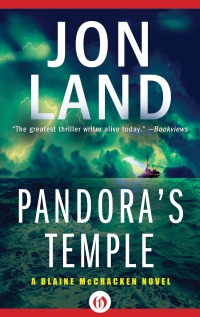The Drowning House by Elizabeth Black
 Monday, January 21, 2013 at 10:57AM
Monday, January 21, 2013 at 10:57AM 
Published by Nan A. Talese on January 15, 2013
The Drowning House is a novel in which dark secrets are revealed, one after another, like bullets from a machine gun. Unfortunately, it takes too long for the firing to begin, and unlike bullets, the revelations have no impact.
Clare Porterfield is a successful photographer who grew up in Galveston, where she returns after an absence of many years to select archived photographs for an exhibition. She has grown apart from her husband Michael, probably because she says things to him like "I want to hear your ideas but I don't want advice," as if the poor guy is supposed to know whether his suggestion of an idea will be construed as advice. Clare also makes condescending remarks about Michael's inability to understand her photography and belittles his "conventional" taste. Their marriage is rocky in part because Clare blames herself for their daughter's death, although Michael obviously does not. Clare is similarly consumed with grievances about her deceased father and unloving mother. She's constantly picking at the scabs of her past, refusing to let them heal.
The novel takes its title from an apocryphal story about the house adjacent to Clare's childhood home -- identified in Galveston guide books as the Carraday House -- in which a seventeen-year-old girl is said to have drowned during a hurricane in 1900. When Clare was still living at home, she spent much of her time visiting Patrick Carraday, "the brother I never had, then later, something more." Then, when she was fourteen, she and Patrick shared a dark moment, the details of which are slowly revealed as the story progresses. After that event, Clare is sent to the Ohio to live with her grandmother and Patrick goes to Europe. In the present, despite being married and not having seen Patrick since they were young, and in the absence of any evidence of interest on Patrick's part in renewing their relationship, Clare can't stop mooning over him. She wants another life, the life with Patrick she imagines she would have had if not for their separation. Clare will eventually discover the difference between fantasy and reality.
The novel's first half is told in long passages of expository writing that the reader must wade through while wondering if they will lead to an actual story. Eventually we learn that the Carradays are keeping a dark secret about their family while Clare's mother is keeping a dark secret about Clare's family. By the time the secrets finally emerged, one bombshell revelation following another, I had stopped caring. Actually, I never started caring, so the blockbuster secrets struck me as contrived melodrama.
I don't need to like a novel's characters because unlikable characters can furnish insights into human nature, but I learned nothing from tedious Clare. It's understandable that Clare is grieving the loss of her daughter. It's understandable that she injects her pain into nearly every conversation she has. It's understandable that she thinks "that grieving the loss of my child would be my life's work." It's understandable that she resents her father, her mother, Patrick's father, and just about everyone in Galveston. But it is just as emotionally draining to read about woe-drenched people who are buttoned up in an insular world of pain as it is to interact with them in real life. It doesn't help that Clare is condescending, not just to her husband but to almost everyone (she wonders, for instance, whether the names Shakespeare and Homer "mean anything" to "harried mothers ... and grizzled homeless men" as if mothers and the homeless never graduate from high school).
Elizabeth Black's descriptions of Galveston are informative and colorful. She writes wonderfully rhythmic sentences, but they had a tendency to lull me to sleep. Black strives to fill every sentence with deep meaning. After awhile, her observational prose ("It's interesting to watch the very rich play the role of host") and earnest questions ("Have you ever discovered yourself in someone else's snapshot?") and reflective comments ("A child is a chance to be someone new and different") become grating. In fact, if I had to describe The Drowning House in a single word, "grating" is the word I would choose.
NOT RECOMMENDED



